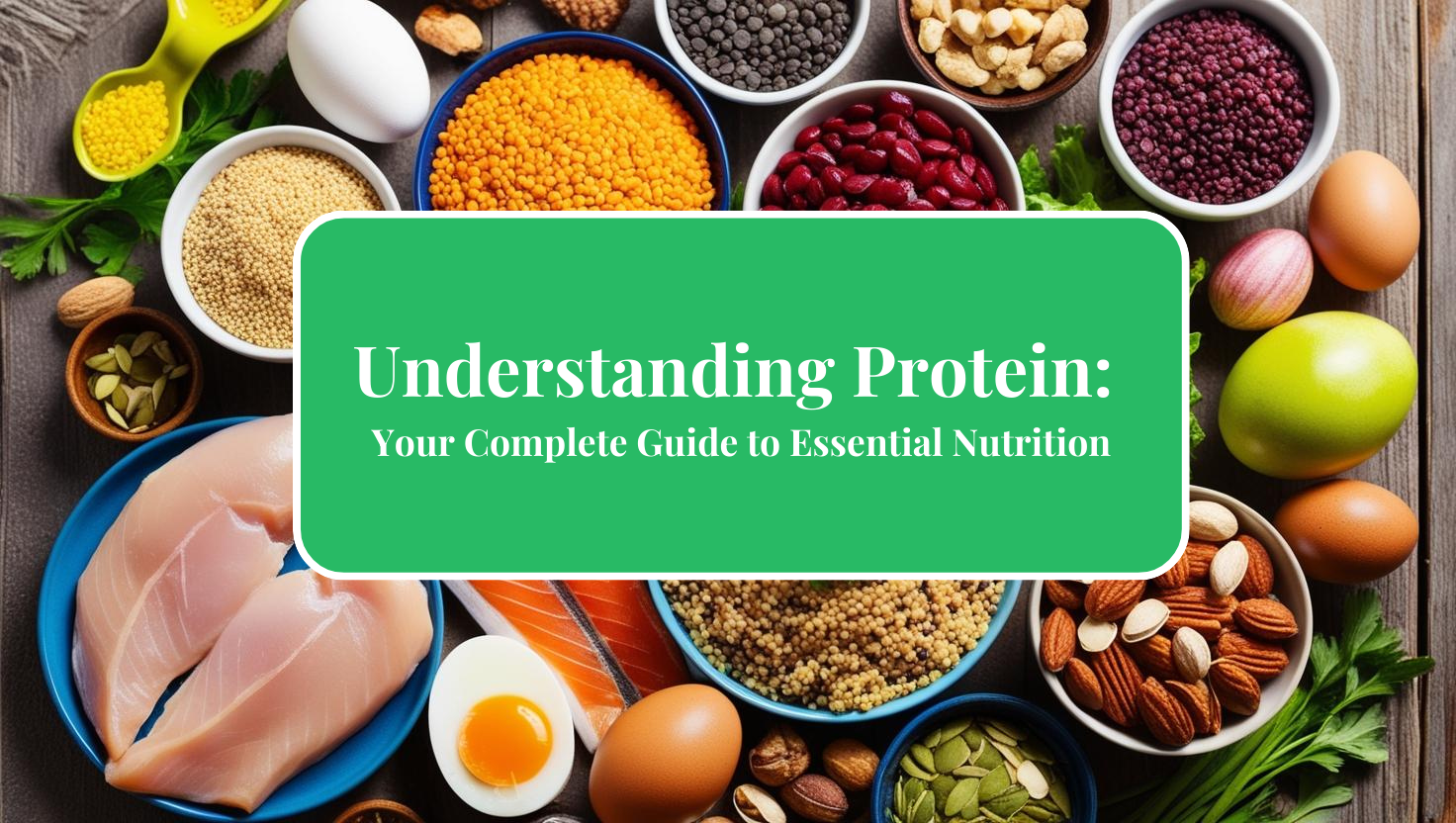The Foundation of Life: What Makes Protein Special? Protein is not just another nutrient – it's a fundamental building block that powers nearly every biological process in your body. When we consume protein, our body breaks it down into amino acids, which then become the architects of our physical well-being, constructing everything from muscle fibers to immune system components.
The Science Behind Protein Think of amino acids as Lego blocks that can be assembled in countless ways to create different proteins. Out of the 20 amino acids your body needs:
- 11 are non-essential amino acids (your body can produce these)
- 9 are essential amino acids (must come from food)
- Each plays a unique role in your body's functions
Your Personal Protein Equation While the basic guideline suggests 1 gram of protein per kilogram of body weight (e.g., 60g for a 60kg person), your needs might vary based on:
- Age and gender
- Physical activity level
- Health goals
- Current health status
- Life stages (pregnancy, recovery, etc.)
Sources of Protein: A Comprehensive Guide
1. Complete Proteins Animal Sources:
- Lean meats (chicken, turkey, lean beef)
- Fish (salmon, tuna, mackerel)
- Eggs
- Dairy products (Greek yogurt, cottage cheese)
Plant-Based Complete Proteins:
- Soy products (tofu, tempeh, edamame)
- Quinoa
- Amaranth
- Buckwheat
2. Incomplete Proteins Plant Sources:
- Legumes (lentils, chickpeas, black beans)
- Nuts (almonds, walnuts, pistachios)
- Seeds (pumpkin, sunflower, chia)
- Whole grains (brown rice, oats)
Strategic Protein Timing
Morning Protein:
- Helps stabilize blood sugar
- Reduces unhealthy snacking
- Supports sustained energy
Post-Exercise:
- Aids muscle recovery
- Reduces muscle soreness
- Supports strength development
Evening Protein:
- Supports overnight muscle repair
- Helps maintain steady blood sugar
- Contributes to better sleep quality
Special Considerations for Different Groups
Athletes and Active Individuals:
- May need 1.2-2.0g of protein per kg of body weight
- Focus on timing around workouts
- Consider both fast and slow-digesting proteins
Vegetarians and Vegans:
- Combine different plant proteins
- Include legumes, nuts, and seeds daily
- Consider fortified plant-based alternatives
- Pay attention to B12 supplementation
Older Adults:
- Often need more protein to prevent muscle loss
- Should focus on high-quality protein sources
- May benefit from protein with each meal
- Should combine protein intake with strength training
Pregnant Women:
- Need additional protein for fetal development
- Should focus on quality protein sources
- May need to adjust portion sizes as pregnancy progresses
Common Mistakes to Avoid
- Overreliance on Supplements
- Whole food sources should be primary
- Supplements should complement, not replace
- Consider quality and ingredients in supplements
- Uneven Distribution
- Avoid consuming most protein in one meal
- Aim for balanced distribution throughout the day
- Include some protein with each meal
- Neglecting Other Nutrients
- Balance protein with adequate fiber
- Include healthy fats
- Don't forget complex carbohydrates
Signs of Adequate Protein Intake
- Steady energy levels
- Good muscle recovery
- Healthy skin and nails
- Stable appetite
- Good immune function
Signs You Might Need More Protein
- Frequent hunger
- Slow recovery from exercise
- Muscle weakness
- Poor wound healing
- Brittle nails
Practical Tips for Increasing Protein Intake
- Start Your Day Right
- Add eggs to breakfast
- Include Greek yogurt
- Consider protein-rich smoothies
- Smart Snacking
- Keep nuts and seeds handy
- Prepare hummus with vegetables
- Have boiled eggs ready
- Meal Planning
- Prep protein sources in advance
- Keep frozen options available
- Plan balanced meals with protein
- Vegetarian/Vegan Solutions
- Explore different legumes
- Try various meat alternatives
- Experiment with high-protein grains
The Balance Approach
Remember that protein intake is just one part of a healthy diet. The key is finding a sustainable approach that:
- Meets your nutritional needs
- Fits your lifestyle
- Supports your health goals
- Can be maintained long-term
The Journey to Optimal Health Your protein needs will evolve with your life stages and goals. Stay informed, listen to your body, and make adjustments as needed. Remember, sustainable changes lead to lasting results.


